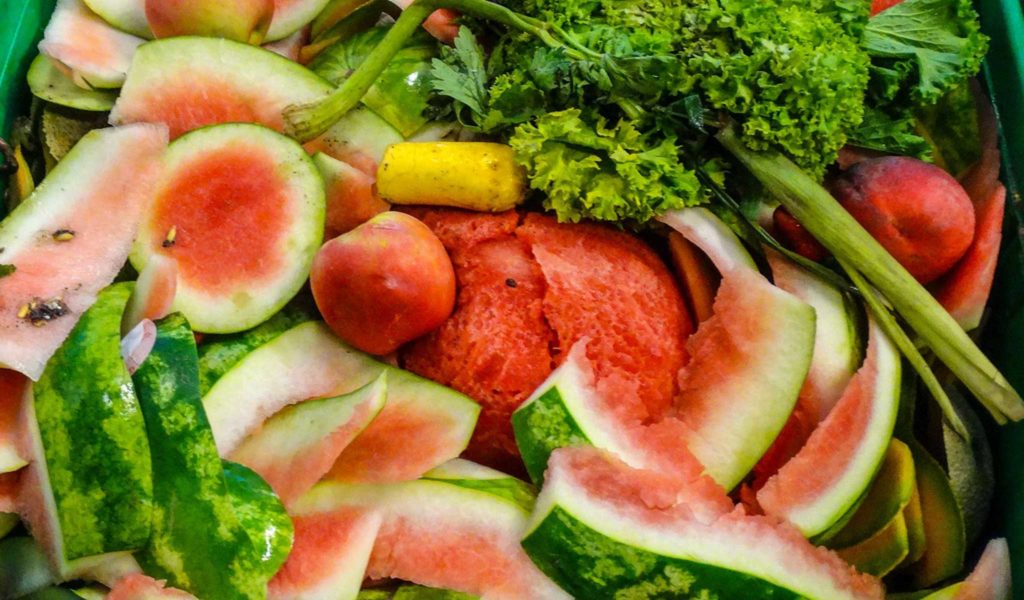UPDATE: As of January 1, 2022, NYC’s Commercial Organics Law is set to be joined by a wider set of regulations and legislation encompassing the entire state, and while this does not include New York City itself, its impact will be felt by businesses operating across the wider NYS area.
At its core, the NYS Food Donation and Food Scraps Recycling law will identify businesses and institutions that generate an annual average of two tons of food a week, requiring them to:
- Donate the maximum practical amount of excess edible food
- Recycle all remaining food scraps if they are within 25 miles of an organics recycler (composting facility, anaerobic digester, etc.)
In a similar way to the NYC Commercial Organics Law, the New York State equivalent includes the largest generators of food scraps such as restaurants, grocery stores, hotels & motels, colleges & universities, malls, event centers, while excluding hospitals, nursing homes adult care facilities, K-12 Schools and farms.
To this end, June 1, 2021, saw the publication of the first list of NYS designated food scrap generators (DFSG) expected to comply with the new law, with annual updates adding newly identified DFSG to the list. Additionally, the anticipated implementation timeless also includes space for a waiver submission period between June and October 2021 to allow certain businesses and organizations to apply for exemption.
More information on the law, the methodology for identifying DFGS, lists of transporters and recyclers can be found on the DEC New York website. Additionally, for more information on how this might affect your business and how RTS can help, contact one of our TRUE advisors today.
As of August 1, 2020, the proposed commercial organics legislation goes into effect. See below for the details. Due to COVID-19, DSNY has agreed to work with affected companies collaboratively on potential first violations; please reach out to us for more information and to discuss ways we can help.
Thursday, October 3, 2019 saw the New York City Department of Sanitation announce proposals to expand its landmark Commercial Organics Law and boost the city’s sustainable credentials. The latest update encompasses more businesses than ever before in plans to keep a further 100,000 tons of food waste out of landfill each year.
According to Sanitation Commissioner Kathryn Garcia, “Businesses in New York City produce more than 650,000 tons of food waste annually, much of which is sent to landfills where it emits harmful methane gas”. Dealing with this waste is high on the list of the city’s sustainability priorities, and the latest push towards Zero Waste is a welcome addition to the city’s 2030 pledge.

In what is the second expansion of NYC’s organic waste legislation since its introduction in 2017, the DSNY has broadened the scope of its commercial organics requirements after ascertaining that existing facilities have the capacity to deal with more material. Now, smaller businesses and chains operating across the city could also be required to properly sort and dispose of all types of organic waste.
The expansion of the DSNY’s mandate will cover both businesses already a part of the program and introduce new groups of businesses that were previously left out—with an estimated 8,500 further establishments expected to be covered by the proposals, including:
- Foodservice establishments larger than 7,000 sq. ft, such as restaurants (previously 15,000 sq. ft)
- Chain food service establishments with two or more locations in New York City which have a combined floor area of at least 8,000 sq. ft and that (i) operate under common ownership or control; (ii) are individually franchised outlets of a parent business; or (iii) do business under the same corporate name (previously 100 or more locations)
- Retail food stores larger than 10,000 sq. ft, or any retail food store that is part of a chain of three or more retail food stores that have a combined floor area space of at least 10,000 sq. ft and that operate under common ownership or control and receive waste collection from the same private carter (previously 25,000 sq. ft and did not mention a combined floor area from multiple sites)
- Foodservice establishments in hotels with 100 or more rooms (previously 150 rooms. A previous stipulation that required food service establishments operate under common ownership or control and receive waste collection from the same private carter that services the hotel has also been removed)
- Food prep spaces larger than 6,000 sq. ft. (new addition)
- Catering establishments hosting events with an attendance of more than 100 people (new addition)
- Any building or premises where food service establishments having a total combined floor area of at least 8,000 sq. ft are located (new addition)
- Sponsors of temporary public events with an anticipated attendance of greater than 500 persons per day (new addition)
 While the comprehensive new proposals are welcomed by many, for the smaller businesses in the city there is still an opportunity to avoid associated fines for non-compliance through DSNY waivers. These apply to any person who owns or operates two or fewer food service establishments if no single food service establishment has a floor area of at least 7,000 sq. ft.
While the comprehensive new proposals are welcomed by many, for the smaller businesses in the city there is still an opportunity to avoid associated fines for non-compliance through DSNY waivers. These apply to any person who owns or operates two or fewer food service establishments if no single food service establishment has a floor area of at least 7,000 sq. ft.
For businesses that are subject to the proposals, there are multiple options for the management of waste organics. These include the self-transportation of organic waste; collection by a private hauler; or the use of on-site, in-vessel composting, aerobic, or anaerobic digestion systems.
The new rules will be subject to a public comment period and hearing on November 20, and if accepted, will take effect 6 months later. After implementation, a 6-month grace period will follow before any fines could be imposed on businesses that do not comply.
For more information about food waste management in NYC, contact RTS and speak to our LEED accredited advisors who will be happy to provide information on your options; including, both on-demand and regular collections of waste, composting and recycling, and the correct usage of specialized organics dumpsters. Additionally, our streamlined waste management services can help you assess your existing requirements, track your waste habits, and reduce waste going forward through on-site education and training.

